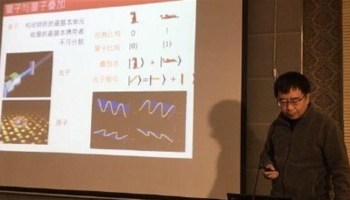YET another government department is going to be set up. Isn’t it common knowledge that the Government has serious budget constraints and is not recruiting to add to an already bloated civil service? And now, another tale of bureaucracy is being spun.
No wonder Malaysian Anti-Corruption Commission chief commissioner Tan Sri Dzulkifli Ahmad is upset over the planned formation of the National Integrity and Good Governance Department (JITN)
Minister in the Prime Minister’s Department Datuk Paul Low has said the proposed department is expected to improve good governance in the civil service.
How would the JITN as a new and probably tiny department be able to do the job? It would probably involve plenty of miracles since there is a reported 1.6 million civil servants to deal with, although Cuepacs says the figure is only at 500,000. It will be a Herculean task to move this mountain of manpower for what’s needed.
Low must surely have good intentions in wanting to set up the JITN, but its objectives and plans remain, at best, vague, at this point.
Its name and role seem almost identical to that of the Integrity Institute of Malaysia (IIM) and Enforcement Agency Integrity Commission.
The IIM, the brainchild of then Prime Minister Tun Abdullah Ahmad Badawi, was set up in 2004 and continues to function.
Its website reads: “IIM’s role is to facilitate the aims and objectives of the National Integrity Plan (NIP). The main objective of IIM is to act as a machinery in the implementation of the NIP towards developing a nation that is of high integrity, resilient and that embraces universal good values.”
The key roles of the institute are: to conduct research related to the integrity of institutions and that of the community; to organise conferences, seminars and forums; to elicit opinions from various sectors on the progress made or on the obstacles faced in implementing integrity; to publish and circulate printed materials as well as formulating and implementing training and educational programmes; to recommend new policies for the enhancement of integrity and ethics; and to advise the Government on strategies and programmes in enhancing integrity.
The voice of cynicism is growing loud and people are questioning the functions of this department, more so if it has no bite. MACC has strongly objected to it, with Dzulkifli labelling it a waste of public funds.
Who can blame the graft buster for being disgruntled? His investigators are overworked and the department understaffed, under budget and now, suddenly, the MACC learns that a new department is to be set up.
If it has no powers and does not concern the MACC, then it is on its way to being another government department which publishes more reports that nobody reads and which will most likely end up gathering dust.
Dzulkifli, who is hard-pressed to secure a heftier budget for his department, has publicly objected to the setting up of JITN, saying the funds could be better used to enhance current enforcement agencies and the wellbeing of its staff.
“What needs to be done is improve and strengthen the laws, human resources and welfare of existing agencies.
“The Government should oversee the welfare of law enforcers. Go and see the conditions of police barracks. They are poorly maintained,” he said.
Dzulkifli urged the Government to re-examine the salaries and housing schemes of law enforcers.
“If we want to decrease corruption and abuse of power in enforcement agencies, the problem will not be solved if law enforcers do not have their welfare taken care of.
“I will defend them (law enforcers) when needed, and take action against them (if they do wrong).
“But we also need to see the state of their welfare,” he told reporters at a corruption-free pledge signing ceremony in Sungai Petani recently.
“Forming a new department will be costly and require hiring new staff. Their scope of duties will be similar to (that of) other law enforcers,” he added.
And even in less-than-ideal circumstances, the MACC has continued with its crime-busting duty, its stats backing up its hard work. Up to last month this year alone, the commission has arrested 728 individuals, including 349 civil servants, 215 members of the public and 151 from the private sector.
So far, 316 people have been accused of corrupt practices this year. Nearly half of them – 155 individuals – are from the civil service. Last year, only 113 civil servants had the long arm of the law catch up with them.
MACC statistics reveal that 1,629 cases (up to last month this year) involved civil servants, compared to 2,008 the whole of last year, with 654 cases concerning members of the public and 174 involving those from the private sector.
Until September this year, 432 investigation papers were opened against civil servants, compared to 526 last year. Half of that figure – 215 – implicated members of the public, 102 members of the private sector, and seven from other categories, including politics.
Up until last month, 756 investigation papers were opened.
Low said the Cabinet has given the green light for the setting-up of JITN to serve as a coordinating body to lead transformational changes in the public and private sectors.
He said the department would focus on good governance, integrity and human rights. How it will co-exist with Suhakam (Human Rights Commission of Malaysia) is something which needs explaining.
JITN received the Cabinet’s nod on July 28, and is currently under review by the Public Service Department pending final approval. The department was previously a division under Low in the Prime Minister’s Department.
There isn’t much the MACC can do now since the Cabinet has already approved the move.
But what the Government should consider doing is to beef up the MACC where manpower and resources are concerned, given the flurry of cases flying its way.
 By Wong Chun Wai The Star
By Wong Chun Wai The StarWong Chun Wai began his career as a journalist in Penang, and has served The Star for over 27 years in various capacities and roles. He is now the group's managing director/chief executive officer and formerly the group chief editor.
On The Beat made its debut on Feb 23 1997 and Chun Wai has penned the column weekly without a break, except for the occasional press holiday when the paper was not published. In May 2011, a compilation of selected articles of On The Beat was published as a book and launched in conjunction with his 50th birthday. Chun Wai also comments on current issues in The Star.
Related Links:
Corruption continues despite ethical courses
RM1.5bil siphoned off over six years - Nation
“Warisan veep arrested”
MACC: RM1.5bil siphoned from federal rural project funds in Sabah
Zahid: Peter Anthony's arrest not politically motivated
Shafie’s ‘key ally’ arrested
MACC freezes RM29mil more in Sabah case - Nation
MACC freezes RM10mil in SDFC probe - Nation
MACC raids 15 locations in ministry theft case - Nation
Minister's political aide remanded - Nation
Related posts:
RM40mil siphoned off from the Malaysian Human Resources, Skills Development Fund Corp !
Huge Civil Service Size, Attractive Emoluments and Benefits are costing Malaysia !
Prized job: While long-term security like the pension scheme free
healthcare and easy loans have been among the perks of joining the ...
Bloated civil sevice in Malaysia must cut down the size and salaries
Call on the Government to downsize the country’s bloated civil service
Ministers may face conflict of interest,
says Tunku Abdul Aziz: "If you have no power, you cannot abuse it.
Civil servants hav...
Time to take fight against graft to the top, say group
Engineer vs Doctor
Arrest decline in productivity and competitiveness in Malaysia
Huge Civil Service Size, Attractive Emoluments and Benefits are costing Malaysia !
Adam at the MACC office in
Putrajaya today prior to his arrest by the anti-graft body. – BBX-Images
Anti-graft investigators l...
Sabah's watergate scandal unfolds THE amount involved in
Sabah’s watergate scandal is unbelievable. The Malaysian Anti-Corru...

Year in review 2016 - MACC makes record haul in 49 years from top officers of Sabah Water dept
IJM hill clearing & Trehaus construction damaged nearby houses since 2014 must be mitigated quickly!
Behind BJ Cove houses at Lintang Bukit
Jambul 1 is an IJM Trehaus Project. Approximate Coordinates :
5°20'38.47"N,100°16&#...


















